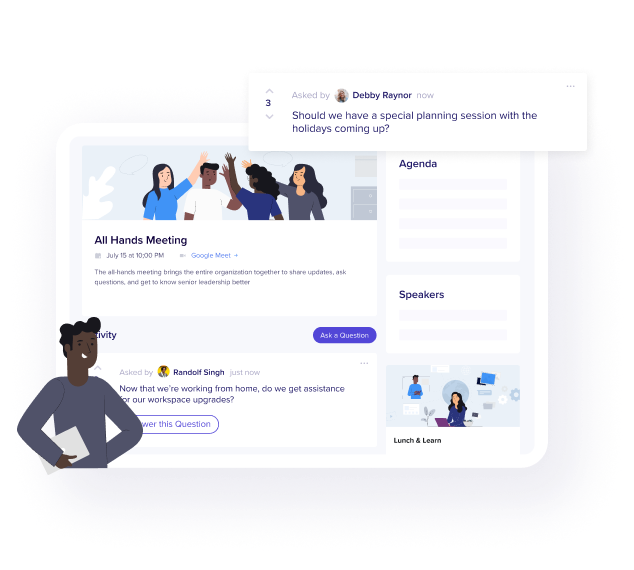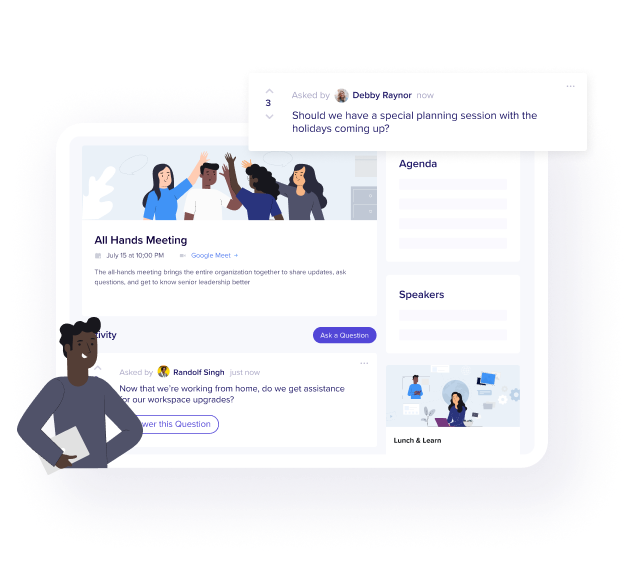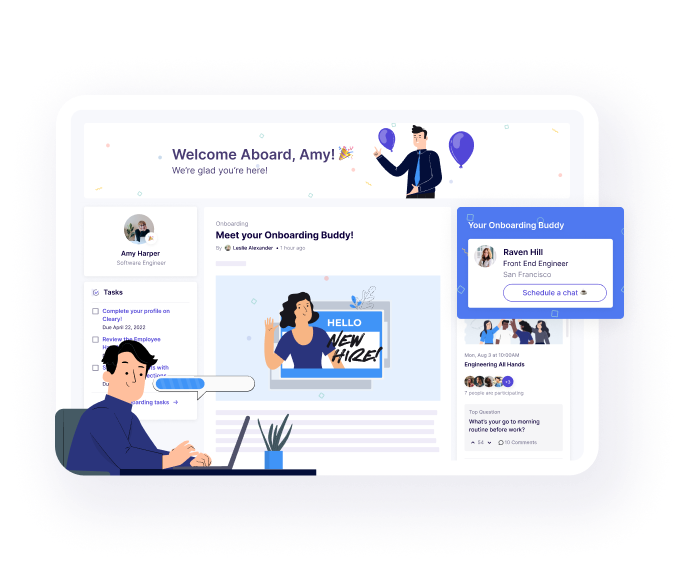
Cleary raises $4.5M to reinvent the intranet
When you hear the word “intranet,” chances are your mind is conjuring up images of badly designed internal communications platforms from the early aughts: a place for your internal communications team to post announcements you’re not going to read. To some degree, that hasn’t changed, but employee expectations have — and so has the work environment, especially as the pandemic has made work-from-home and hybrid work the default at many companies. And that, in turn, has made being able to communicate with employees, who increasingly feel disconnected from their jobs, even more important.
San Francisco-based Cleary is part of a new cohort of startups that aim to revitalize the intranet. The company today announced that it has raised a $4.5 million seed funding round led by Moonshots Capital. Liberty City Ventures, Crosslink Capital, Seachange Fund and Quiet Capital also participated in this round, which follows the company’s initial $3 million pre-seed round.
The company’s founders, Thomas Kunjappu and Ryan O’Donnell, previously ran Twitter’s internal people tools team (and left long before a certain billionaire acquired the company). In doing so, the founders realized that while companies like Twitter were able to build these bespoke tools for their employees, there were no comparable services on the market for all of the smaller companies that weren’t able to dedicate entire development teams to internal tools. Yet at the same time, a lot of these larger companies kept re-inventing the same tools for their employees.
“There was a point when Ryan and I were just looking for inspiration for improving the products that we were building and engaging with [at Twitter],” Kunjappu said. “We looked at what else was available. If you’re an employee at Google, if you’re an employee at Uber, if you’re an employee at Dropbox — and the list goes on — there is this bespoke internal tooling ecosystem that is built for the employee base and there’s maybe 80% overlap between them. But there’s nothing quite like that in the market.”
He also noted that it used to be the standard for most companies to hire internal comms teams once they hit about 500 employees. That number has dropped significantly since the start of the pandemic.
“With COVID, what’s happening is that the same challenges around communications, culture, productivity are coming down market to a much smaller company. A company with 50 home offices starts to see the same challenges as a 500-person company in two locations,” he said.
The idea behind Cleary then is to offer a full-stack employee experience platform. As businesses try to bring their SaaS spending under control, that may turn out to be a smart approach. Cleary combines a communications platform, wikis, tools for helping businesses recognize their employees (at least virtually), an employee directory with org charts, a search tool that brings together a company’s knowledge base from across various third-party tools and a Q&A service for live events. It integrates with HR tools like Workday and ADP, communications services like Gmail, Google Calendar and Slack, as well as authentication services from Okta, Microsoft and Google.
With that, businesses can use the platform to build anything from on-boarding experiences to hosting live events. But what’s maybe most important to HR teams right now is using a service like Cleary to help them scale their culture. That has always been difficult, but it’s increasingly more so.
As Kunjappu also noted, one of the areas the team is focused on now is building personalized experiences for every employee. A newly onboarded employee in IT has different needs from an experienced sales manager, after all. Cleary believes that it can help businesses tailor their employee experience offerings to these individual needs — and reach them where they are, be that in email, Slack or Teams.
“Our whole strategy is — yes, we are focused on communications and culture and productivity — but how it all comes together is with this personalized employee journey,” he explained.
That’s where the company is investing a lot of its engineering resources right now, but it is also starting to build out its go-to-market teams.
“The tailwinds of the COVID pandemic continue to shift workplace expectations among knowledge workers, and companies that provide essential tools for remote work will thrive in the years to come,” said Kelly Perdew, general partner at Moonshots Capital. “In addition to a superior product, Cleary has extraordinary leadership from founders with deep domain expertise, and that’s what ultimately leads to success and why we are so excited to partner with Thomas and Ryan.”



